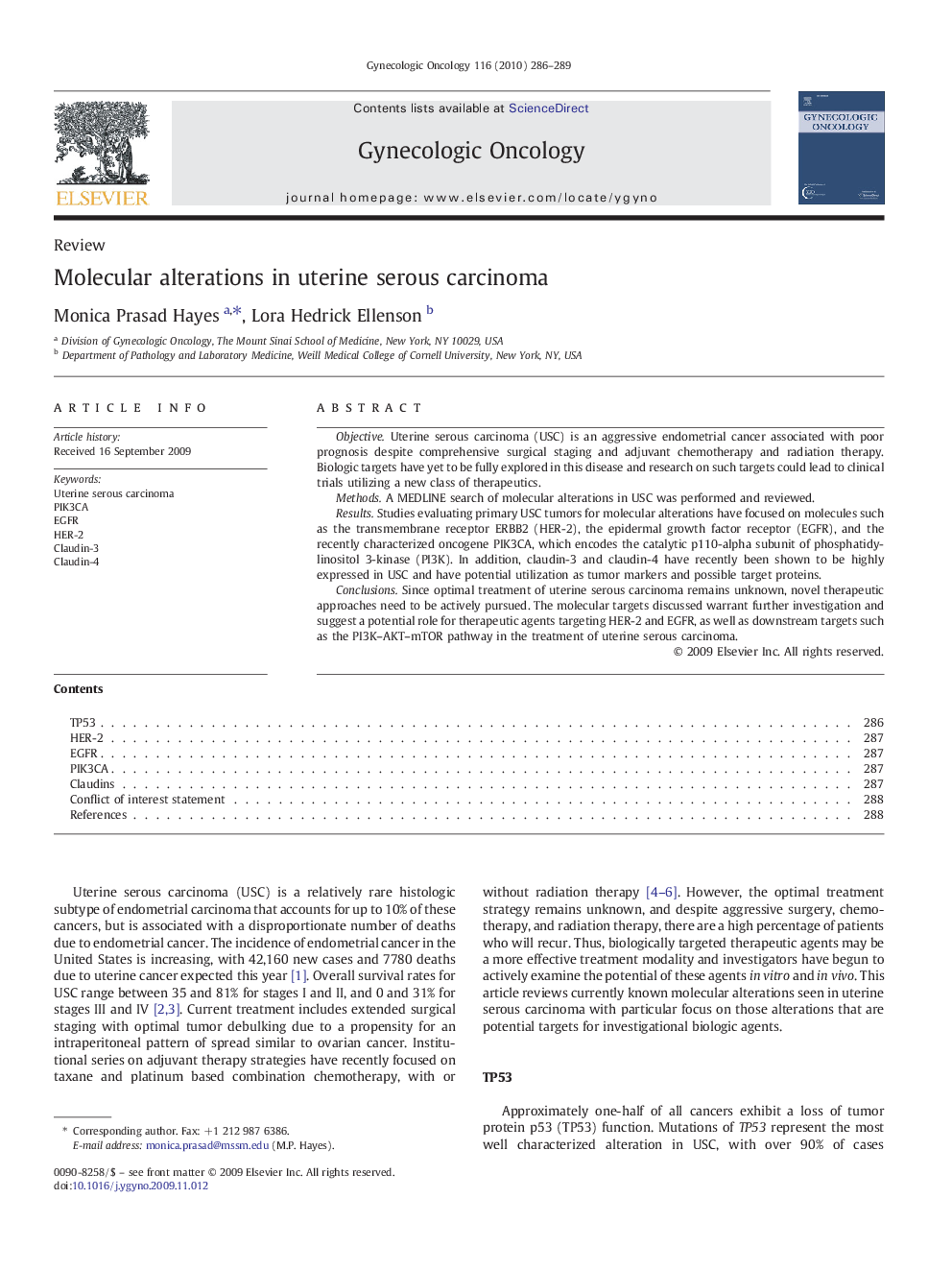| Article ID | Journal | Published Year | Pages | File Type |
|---|---|---|---|---|
| 3945824 | Gynecologic Oncology | 2010 | 4 Pages |
ObjectiveUterine serous carcinoma (USC) is an aggressive endometrial cancer associated with poor prognosis despite comprehensive surgical staging and adjuvant chemotherapy and radiation therapy. Biologic targets have yet to be fully explored in this disease and research on such targets could lead to clinical trials utilizing a new class of therapeutics.MethodsA MEDLINE search of molecular alterations in USC was performed and reviewed.ResultsStudies evaluating primary USC tumors for molecular alterations have focused on molecules such as the transmembrane receptor ERBB2 (HER-2), the epidermal growth factor receptor (EGFR), and the recently characterized oncogene PIK3CA, which encodes the catalytic p110-alpha subunit of phosphatidylinositol 3-kinase (PI3K). In addition, claudin-3 and claudin-4 have recently been shown to be highly expressed in USC and have potential utilization as tumor markers and possible target proteins.ConclusionsSince optimal treatment of uterine serous carcinoma remains unknown, novel therapeutic approaches need to be actively pursued. The molecular targets discussed warrant further investigation and suggest a potential role for therapeutic agents targeting HER-2 and EGFR, as well as downstream targets such as the PI3K–AKT–mTOR pathway in the treatment of uterine serous carcinoma.
